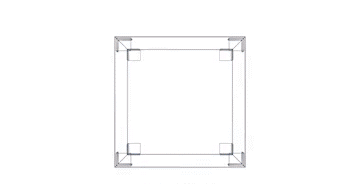
A wormhole is a theoretical passage that cuts through space-time, which could create shortcuts for long journeys across the universe.
Indian physicist Rajibul Shaikh from the Tata Institute of Fundamental Research has determined that a certain class of rotating wormholes, which may be used for space-time travel, cast a specific “shadow.”
The shadow is a dark area, which surrounds the wormhole and could be accessible to direct observation, Dr. Shaikh wrote in an article whose pre-print has been published in the arXiv repository.
Wormholes distort space-time, creating a tunnel which could allow future starships to zip across the galaxy faster than the speed of light.
Such tunnels are called “impassable,” as they are fraught with sudden collapses, high radiation and dangerous contact with exotic matter.
The colossal gravitational pull of wormholes, black holes and other super-massive objects also creates the effect of gravitational lensing, where the trajectory of light rays passing through them is changed.
The background area visible to the eye must feature a dark spot where the gravitational effect is so strong that that nothing — not even particles and electromagnetic radiation such as light — can escape from inside it.
Hypothetically, this dark area can be observed with ground- and space-based telescopes.
Rajibul Shaikh believes that the existence of rotating wormholes can be proven by spotting a shadow with characteristics all its own.
Calculating the shadow’s precise shape, the scientist determined if the outside source of light is located at one side of the wormhole, the light is partly dispersed and party enters the tunnel.
READ MORE: Astronomers Discover Dark-Matter Deficient Galaxy for 1st Time — NASA
As a result, an observer on a planet close to the wormhole sees light and dark spots laid out in a specific pattern in the sky.
If the wormhole is rotating relatively slowly, its shadow will resemble that of a Kerr black hole. With increasing rates of the spin, the shapes of the wormhole shadows start to deviate considerably from that of the a black hole.

Hi! I am a robot. I just upvoted you! I found similar content that readers might be interested in:
https://sputniknews.com/science/201804191063716608-wormhole-space-time-scientist/